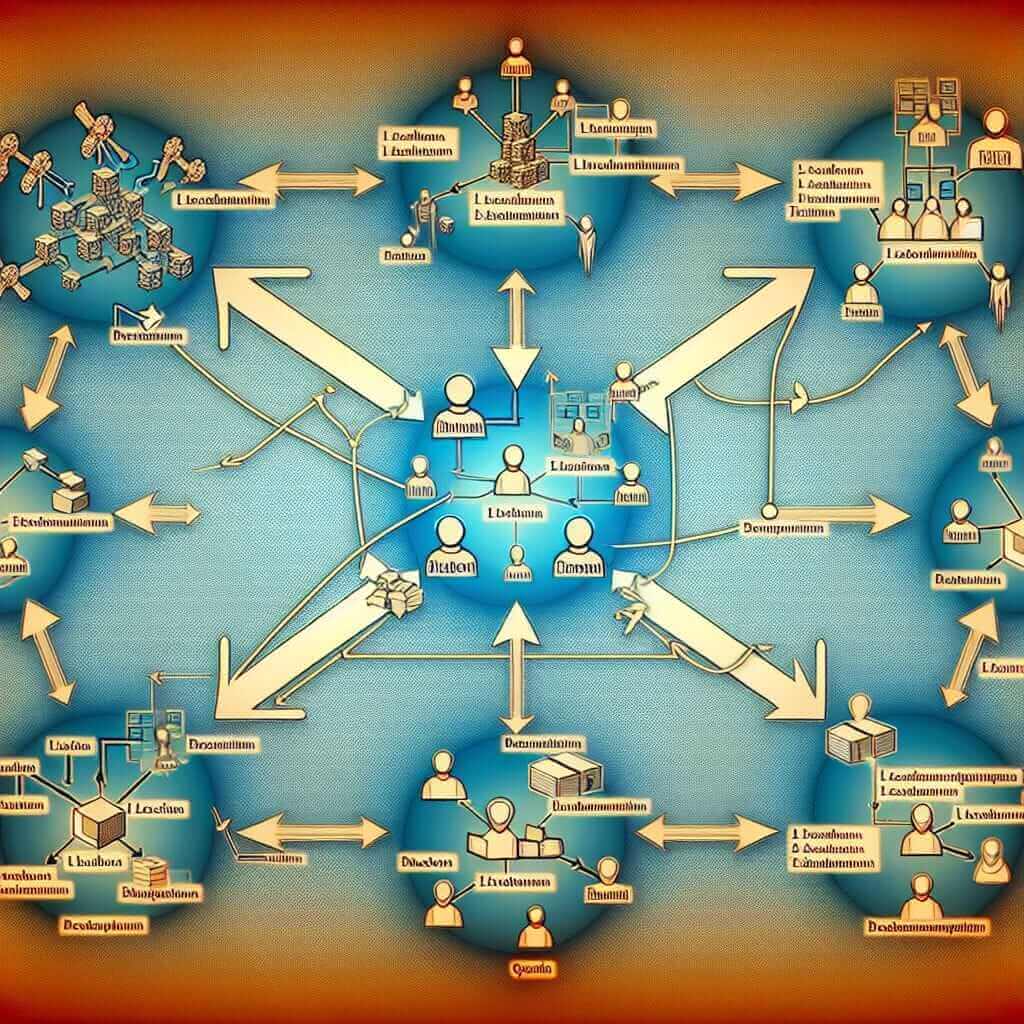The Reading section of the IELTS exam often features texts that reflect current and significant global trends. One such trend is blockchain technology and its impact on various industries, including logistics. Historically, topics related to technological advancements and their influence on sectors like transportation and logistics have frequently appeared in the IELTS Reading section. Given the increasing relevance of blockchain technology in global logistics, it is likely to be a topic that could feature in upcoming IELTS exams.
In this practice passage, you’ll explore how blockchain technology is reshaping global logistics. Following this, you will find reading comprehension questions and answers designed to simulate the actual IELTS Reading test format.
Reading Passage and Questions
Reading Passage
The following passage discusses the role of blockchain technology in revolutionizing global logistics.
Blockchain Technology and Global Logistics
Blockchain technology, initially developed for securing cryptocurrency transactions, is now being hailed as a transformative force in the global logistics industry. By providing a decentralized and immutable ledger, blockchain can enhance transparency, traceability, and efficiency in supply chains worldwide.
One crucial advantage of blockchain in logistics is the increased transparency it offers. Every transaction recorded on a blockchain is transparent and immutable, meaning it cannot be altered or deleted. This feature is particularly beneficial in logistics, where the origin and journey of goods need to be tracked with utmost accuracy. For example, when a product is shipped, every step it takes from manufacturer to retailer can be securely documented on the blockchain, ensuring accountability and reducing the risk of fraud.
 The Impact of Blockchain on Global Logistics
The Impact of Blockchain on Global Logistics
Furthermore, blockchain can significantly enhance the efficiency of logistics operations. Traditionally, logistics involves a plethora of paperwork, including bills of lading, customs declarations, and invoices. The manual handling of these documents is not only time-consuming but also prone to errors. By digitizing and automating documentation via smart contracts on the blockchain, the entire process can be streamlined, reducing administrative costs and minimizing human errors.
Blockchain technology also contributes to better traceability in supply chains. In cases of product recalls due to safety concerns, the ability to quickly trace the origins and movements of goods is paramount. Blockchain enables companies to follow the trail of any product through every transaction, making it easier to identify the exact source of the issue and take swift corrective actions.
Additionally, blockchain’s ability to facilitate secure and transparent transactions opens up new possibilities for financial interactions within logistics. For instance, upon receiving goods, the blockchain can trigger automatic payments to the supplier through smart contracts, ensuring timely and accurate financial settlements across borders.
Despite these advantages, the adoption of blockchain in logistics is not without challenges. The technology requires significant investment and an overhaul of existing infrastructure. Moreover, achieving industry-wide standardization and interoperability of blockchain systems remains a complex task. Nonetheless, as technology matures and businesses increasingly recognize its potential benefits, blockchain is poised to become a mainstay in global logistics.
Questions
Multiple Choice
-
What is one of the primary benefits of blockchain in logistics?
a) Reduction in the need for transportationb) Enhanced transparency and traceability
c) Increased paperwork
d) Higher costs
-
How does blockchain improve the efficiency of logistics operations?
a) By introducing more manual processesb) By making it easier to alter transaction records
c) By digitizing and automating documentation
d) By increasing human intervention
True/False/Not Given
-
Blockchain technology eliminates the need for customs declarations in logistics. (True/False/Not Given)
-
Product recalls become easier with blockchain technology due to better traceability. (True/False/Not Given)
Sentence Completion
- One of the challenges of adopting blockchain in logistics is __.
- Upon receiving goods, blockchain can trigger __ to the supplier.
Answers and Explanations
Multiple Choice Answers
-
b) Enhanced transparency and traceability
Explanation: The passage clearly states that transparency and traceability are among the primary advantages of blockchain technology in logistics.
-
c) By digitizing and automating documentation
Explanation: The passage highlights how digitizing and automating documentation through blockchain streamlines logistics processes.
True/False/Not Given Answers
-
Not Given
Explanation: The passage does not mention the elimination of customs declarations, only the reduction of paperwork overall.
-
True
Explanation: The passage explicitly mentions that blockchain enhances traceability, making it easier to handle product recalls.
Sentence Completion Answers
-
One of the challenges of adopting blockchain in logistics is significant investment and an overhaul of existing infrastructure.
Explanation: The passage discusses the need for substantial investment and infrastructure changes as challenges for blockchain adoption.
-
Upon receiving goods, blockchain can trigger automatic payments to the supplier.
Explanation: The passage describes how smart contracts can handle payments automatically upon receipt of goods.
Common Mistakes and Tips
Common Mistakes
- Overlooking Details: Ensure you read the passage carefully to grasp all details before answering the questions.
- Misinterpreting Information: Pay attention to what is directly stated versus implied or not mentioned at all.
- Time Management: Manage your time effectively, especially in longer texts—do not spend too much time on one question.
Vocabulary
- Immutable (adj.): [ɪˈmjuːtəbl] – Unchanging over time or unable to be changed.
- Smart Contract (n.): A computer protocol intended to digitally facilitate, verify, or enforce the negotiation or performance of a contract.
- Interoperability (n.): The ability of computer systems or software to exchange and make use of information.
Grammar
- Passive Voice: Used to emphasize the action rather than the doer (e.g., “Every transaction recorded on a blockchain”).
- Relative Clauses: Essential for providing additional information about something mentioned in a sentence (e.g., “which is particularly beneficial in logistics”).
Conclusion
Practicing with passages on relevant topics like blockchain technology can greatly enhance your readiness for the IELTS Reading section. Remember to focus on understanding the passage completely, manage your time well, and work on avoiding common mistakes. By regularly practicing with realistic passages, you are more likely to achieve a high score in the Reading section.
Good luck with your IELTS preparation!


